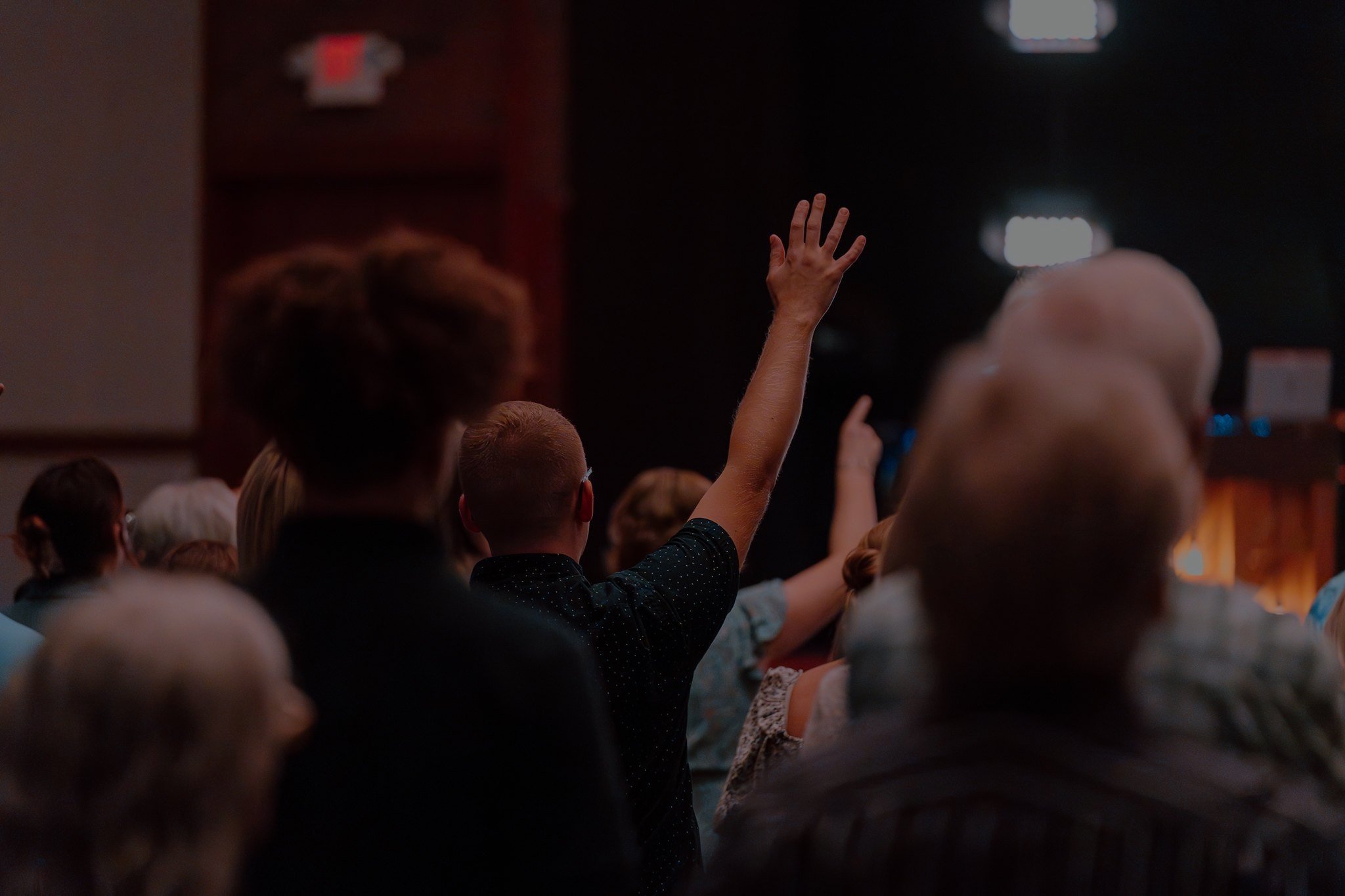
We believe that worship is an essential and central part of our relationship with God and with one another within our community. It serves as a vital expression of our faith and dedication, fostering connection and unity among us.
9 Guiding principles behind how and why we worship together:
-
God has created us for and commanded us to worship Him, and when we gather, our worship is directed solely toward Him. This means that we’re removing ourselves from the center of our universe and giving God his rightful place of glory. We do this by acknowledging our dependence on Him, submitting to his sovereignty in our lives, confessing our need for His mercy and grace, and making his pleasure and glory our primary focus.
-
The gospel shapes everything that we do in worship. From the songs we sing to the messages we preach; every element of our gathering proclaims the good news of salvation. Our worship gatherings are structured in a way that will help us know and understand that truth from start to finish.
-
The Bible should be the primary means through which the Spirit not only reveals God’s glory to us but also transforms us into His likeness as well. We don’t need to rely on trends or any kind of emotional manipulation, because we know that the Word of God is alive, powerful, and even unstoppable. As a result, our gatherings should be totally saturated by it. We sing it, we read it, we pray it, and we preach it and it alone.
-
While our worship is ultimately directed towards God, it also strengthens our bonds with one another. When we worship together, we build up and encourage each other in love. We do this by singing spiritual songs to each other, speaking the truth in love, confessing sin, reminding each other of the gospel, praying together, and serving one another with our talents and resources.
-
True worship goes beyond Sunday gatherings. It should be a lifestyle of devotion to God, as we seek to honor Him in all we do. Romans 12:2 says, “Do Not be conformed to this world, but be transformed by the renewal of your mind, that by testing you may discern what is the will of God, what is good and acceptable and perfect.” This means that how we worship in our gatherings with one another should be a result of how we devote our lives to knowing and loving Christ.
-
As we enter His presence, encounter His glory, remember His son, and reflect on His gospel, our natural response should be an expression of joy and celebration. We want our expressions of praise to be proportionate to the glory that has been revealed and to the degree in which God has blessed us in his Son, Jesus Christ. In other words, we believe theological depth and Biblical accuracy should produce in us passionate and joyful affections for God, and we want our worship gatherings to be a time for those affections to be expressed fully – without shyness or fear of what others might think.
-
Psalm 150 declares, “Praise the Lord! Praise God in his sanctuary; praise him in his mighty heavens! Praise him for his mighty deeds; praise him according to his excellent greatness! God requires our very best, and we dishonor God if we offer anything less. But let’s not confuse excellence with perfection. Sometimes our idea of excellence can be based on musical perfection or professional quality. Excellence is not perfection. It’s about being connected to God and letting him mold your character into being more like Jesus. God should be our priority in being excellent in worship. If we seek to be perfect, we will fail 100% of the time.
-
We believe worship is for everyone. Psalm 78:4-7 says, “We will not hide them from their children, but tell the coming generation the glorious deeds of the Lord, and his might, and the wonders that he has done… so that they should set their hope in God and not forget the works of God, but keep his commandments.” Our gatherings aim to unite people of all ages in lifting the name of Jesus. By blending tradition and creativity, we create spaces where every generation can connect with God and each other, growing together as His family
-
Worship doesn’t end when the service is over; it sends us out. As we encounter God in worship, we are reminded of His call to share His love with the world. Our worship fuels us to live on mission, serving others, proclaiming the gospel, and reflecting Christ in our daily lives.
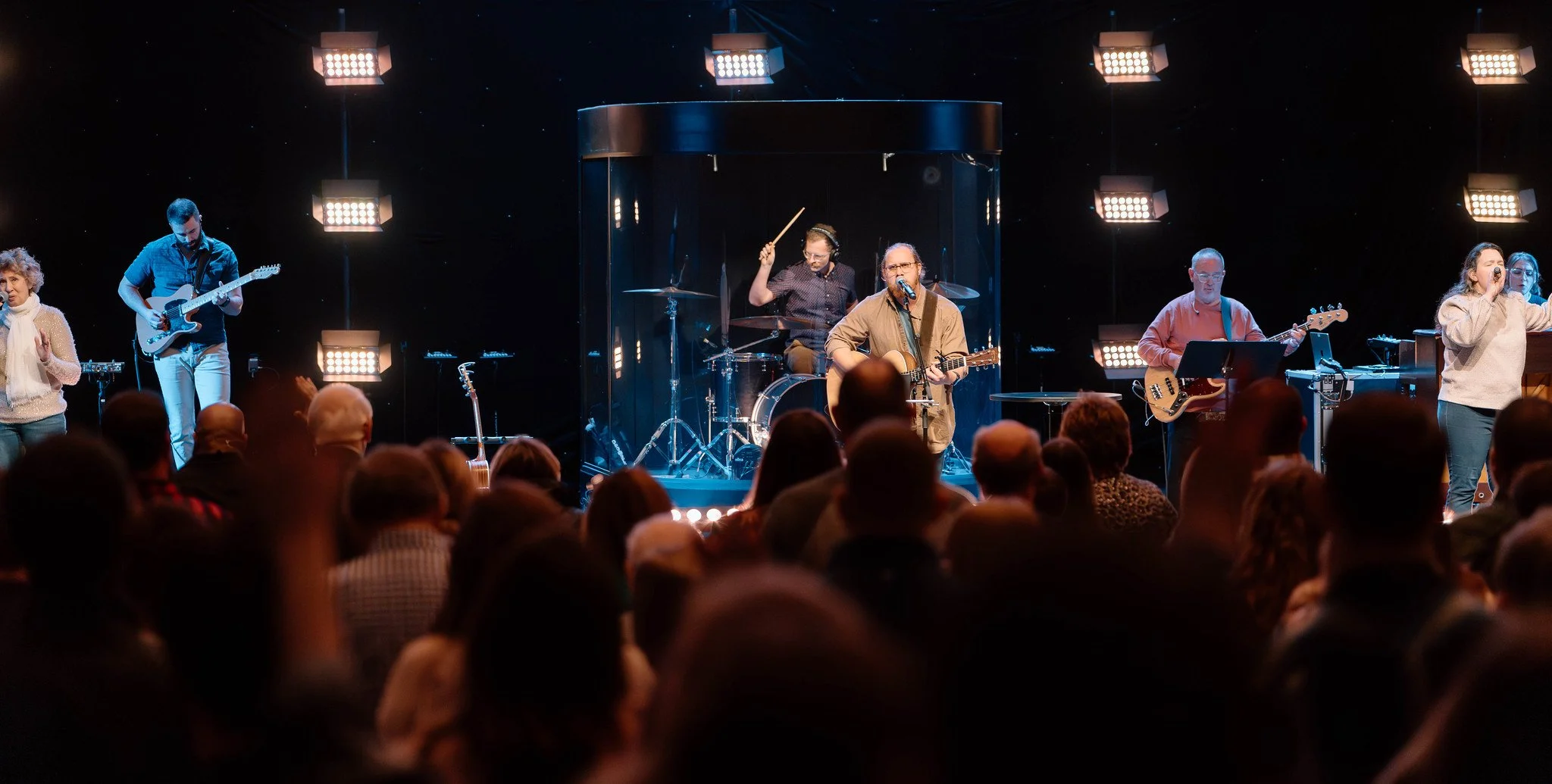

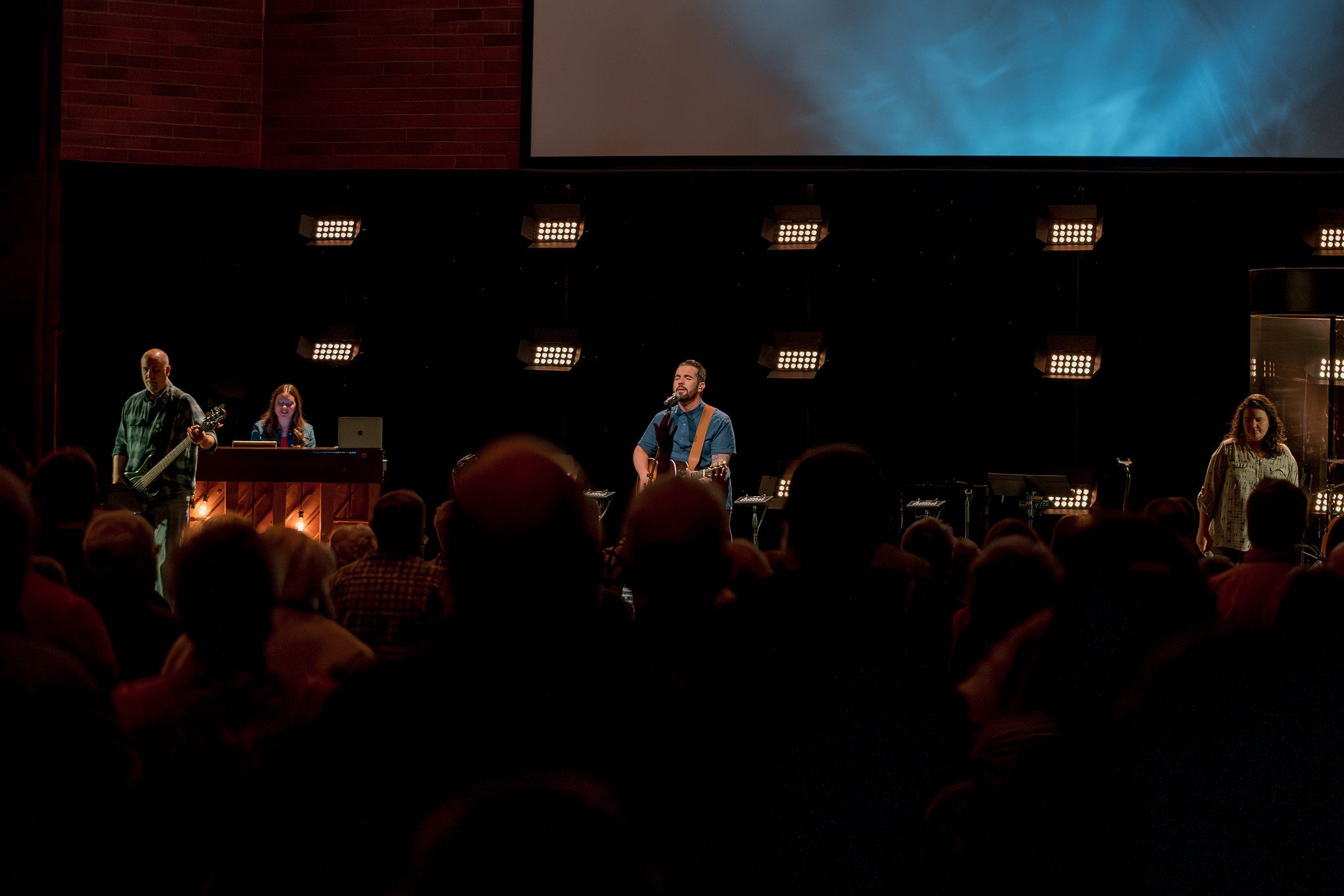
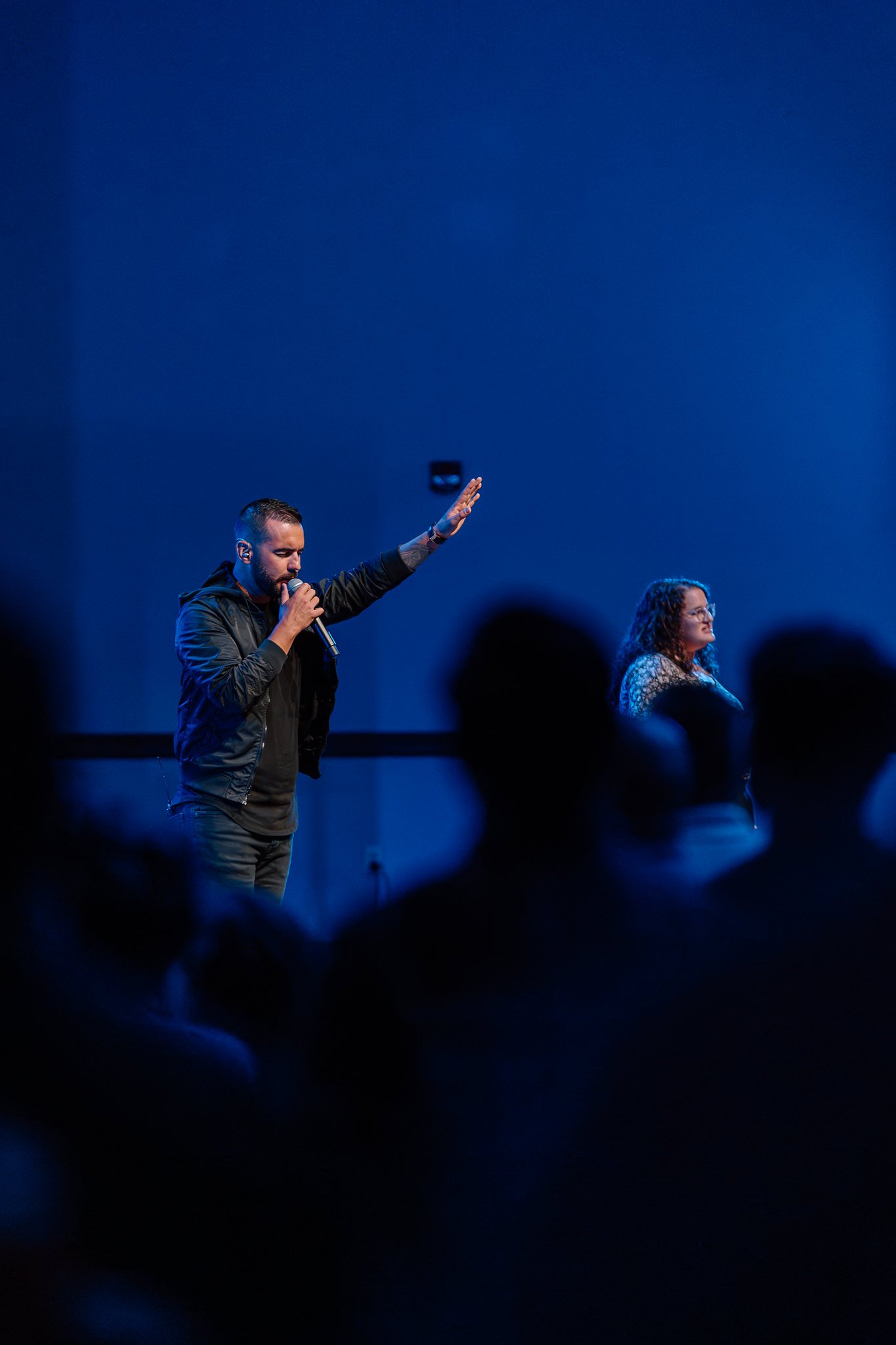

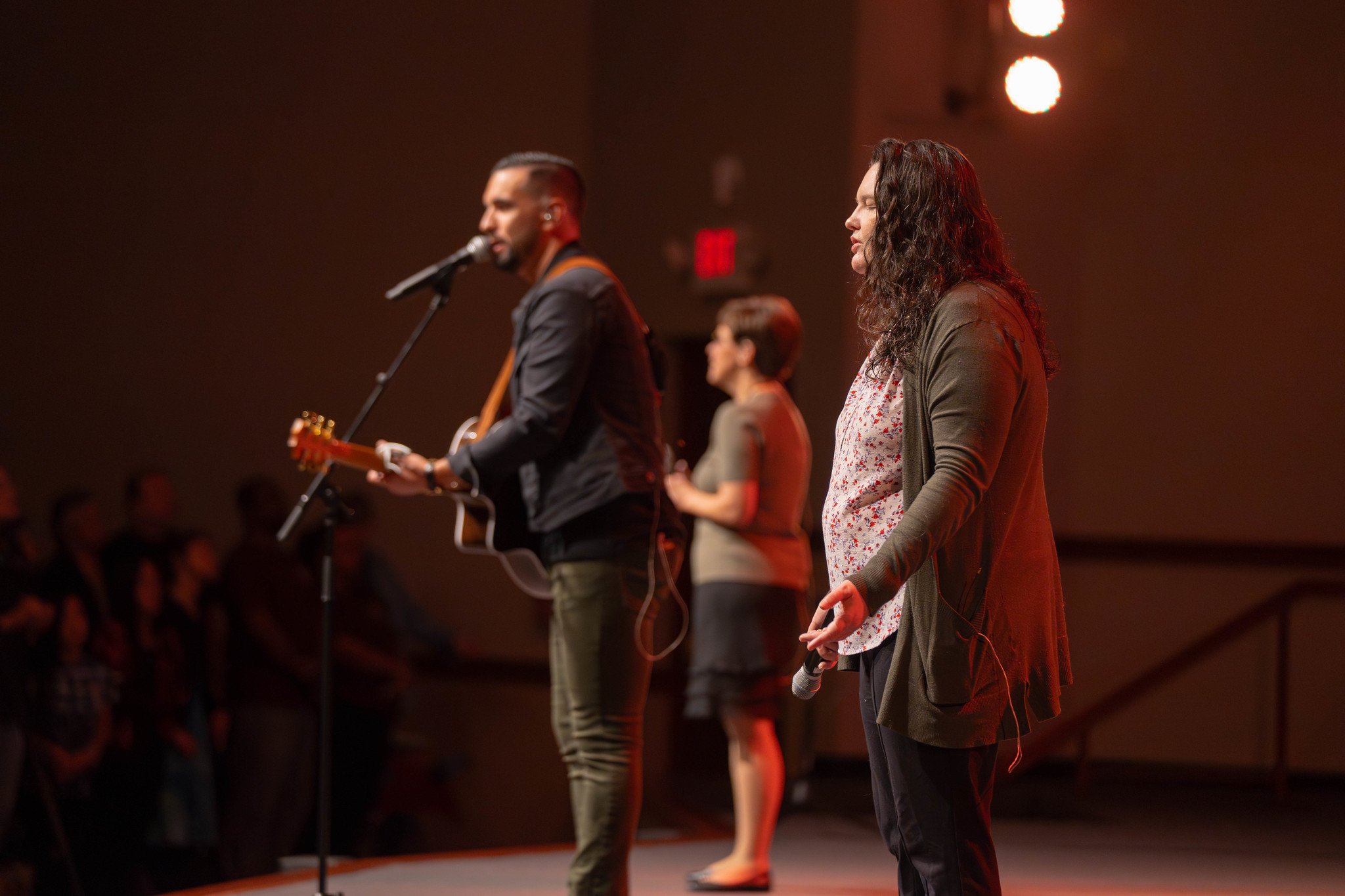

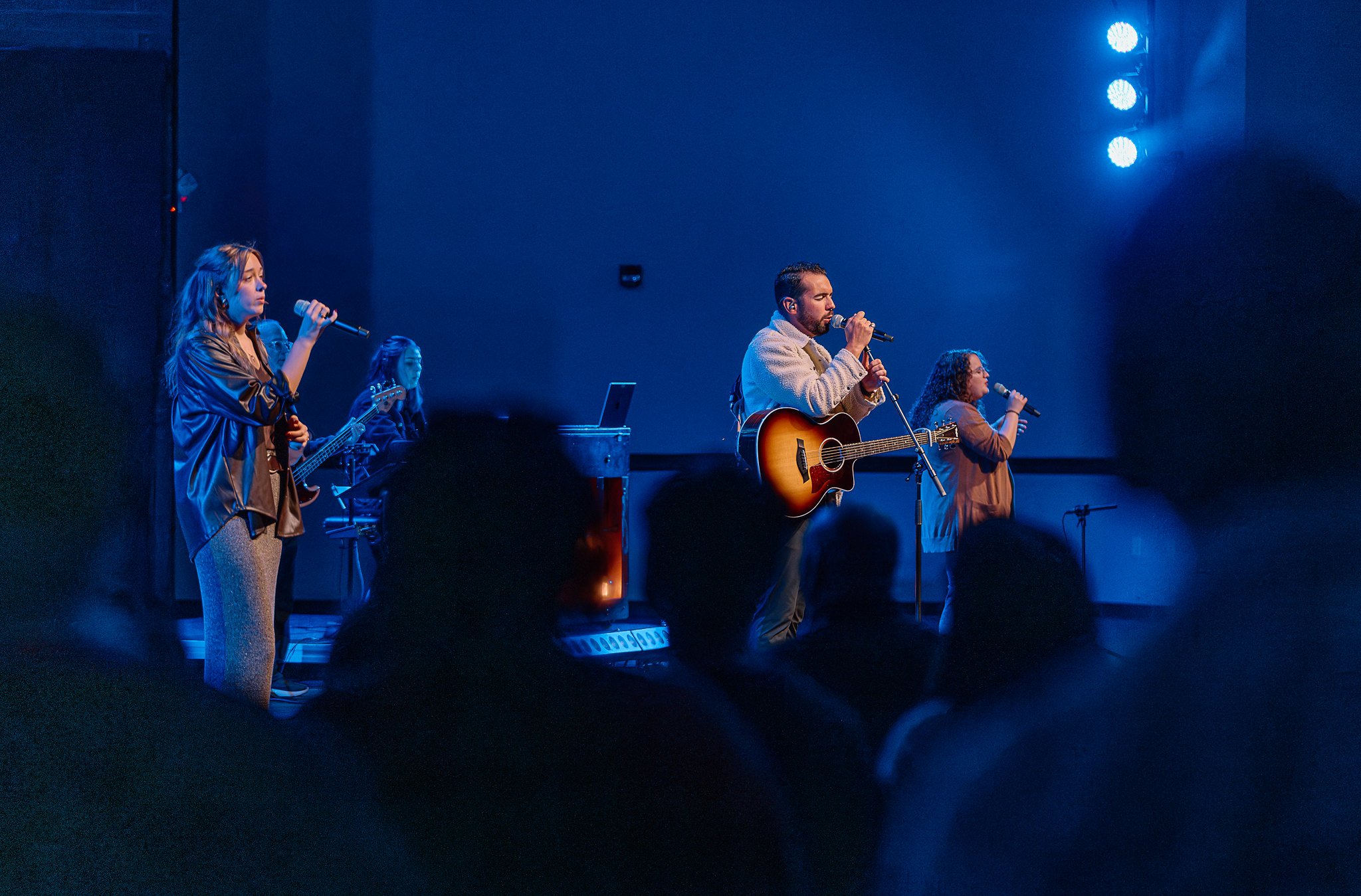
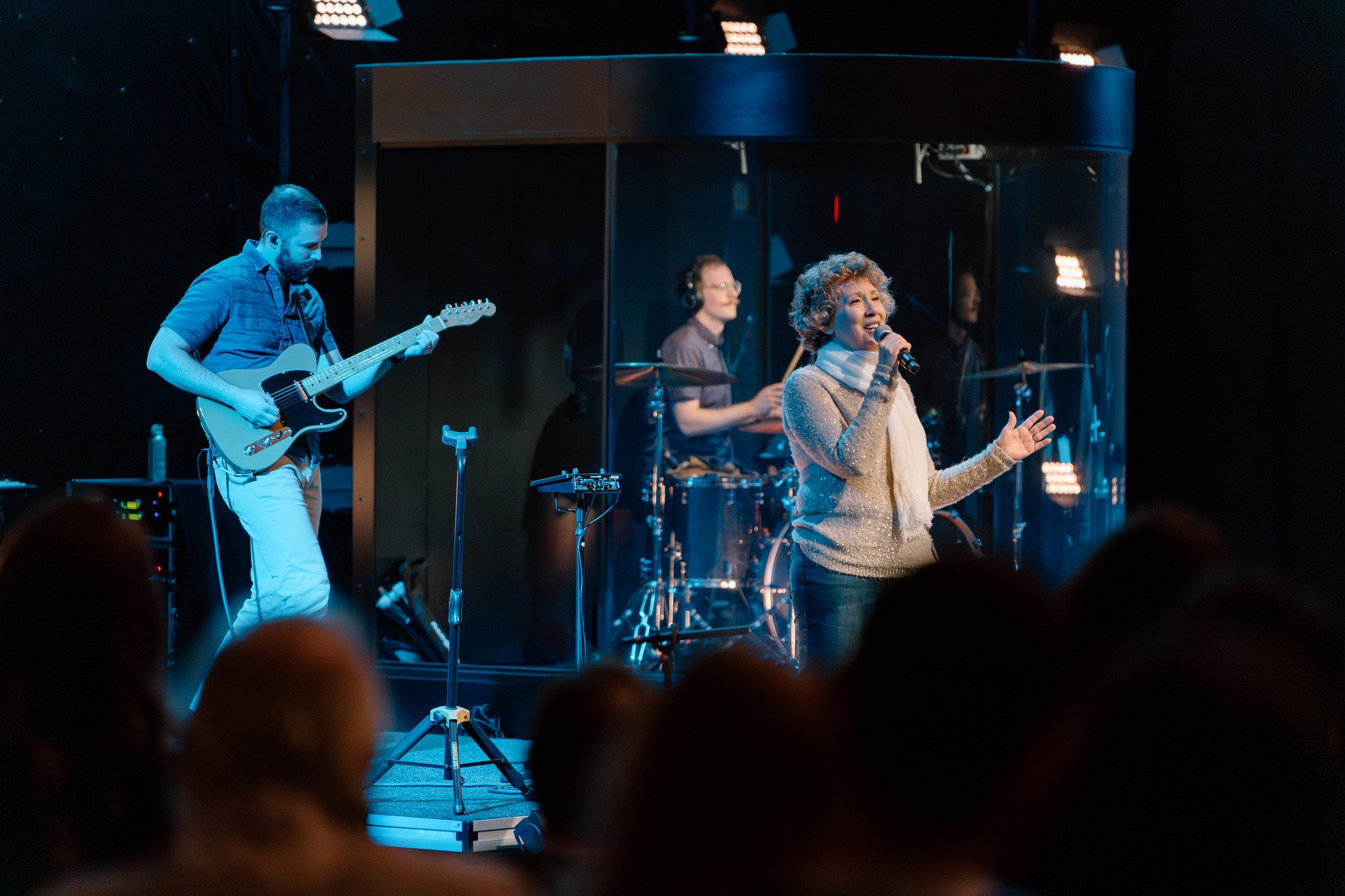
Why Do We Sing?
Our singing with one another reflects the nature of God.
The Father sings over His redeemed people (Zephaniah 3:17). Jesus sings with us in the midst of the congregation (Heb. 2:12). One of the fruits of being filled with the Spirit is singing (Eph. 5:18-19). We worship the triune God who sings, and He wants us to be like Him.
Singing together reflects and deepens our unity in the gospel.
Being together in the same room is one way we can express our unity. But singing together also draws attention to that bond as we sing the same words at the same time.
Singing helps us remember words
Throughout scripture, God reminds His people of their tendency to forget His promises, commands, and warnings. So, we sing to remember God’s word and the truth of the gospel.
There are almost 50 direct commands to sing in scripture, as well as 400 references to singing. Two of those passages (Eph 5:19, Col 3:16) instruct us to sing psalms, hymns, and spiritual songs to God and to one another. These are not suggestions, preferences, or good ideas – they are commands, which means God intends for us to obey them.
Sean Colelli, Worship Pastor
While born and raised here in Akron, Ohio, Sean comes to Maranatha from Phoenix, Arizona, along with his wife Emily and two daughters, Lilah Rose and Evangeline Grace. Sean is thrilled to be a part of the ministry here at Maranatha and desires to see people grow in their knowledge and love for Jesus through the good news of the Gospel.


